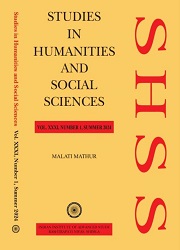The Role of Resilience in Promoting Universal Human Values among Pre- Service Teachers:
A Qualitative Study
Keywords:
Resilience, Universal Human Values, Pre-Service Teachers, Thematic AnalysisAbstract
This study aimed to investigate the role of resilience in promoting universal human values among final-year pre-service teachers pursuing Bachelors of Education (B.Ed.) from Akal University in the Bathinda District of Punjab region. Utilizing a qualitative approach, semi-structured interviews were conducted to collect the sample from 30 pre-service teachers through purposive sampling. The findings revealed that classroom adaptability is essential for linking resilience
to universal values, highlighting the importance of flexibility in addressing challenges. Participants also emphasized kindness as a crucial factor in fostering emotional safety and identified positive role modeling as vital for instilling respect for human dignity. Furthermore, the study revealed that mentorship and collaborative problem-solving are fundamental in navigating challenges and promoting honesty and integrity. Thematic analysis underscored the significance of a values-based curriculum and sustainable practices in enhancing resilience. Overall, these findings illuminate how resilience can empower pre-service teachers to embody and promote universal human values, contributing to the development of more inclusive and ethical educational environments. This study has implications for teacher training programs, emphasizing the need to integrate resilience-building strategies that align with values education.



